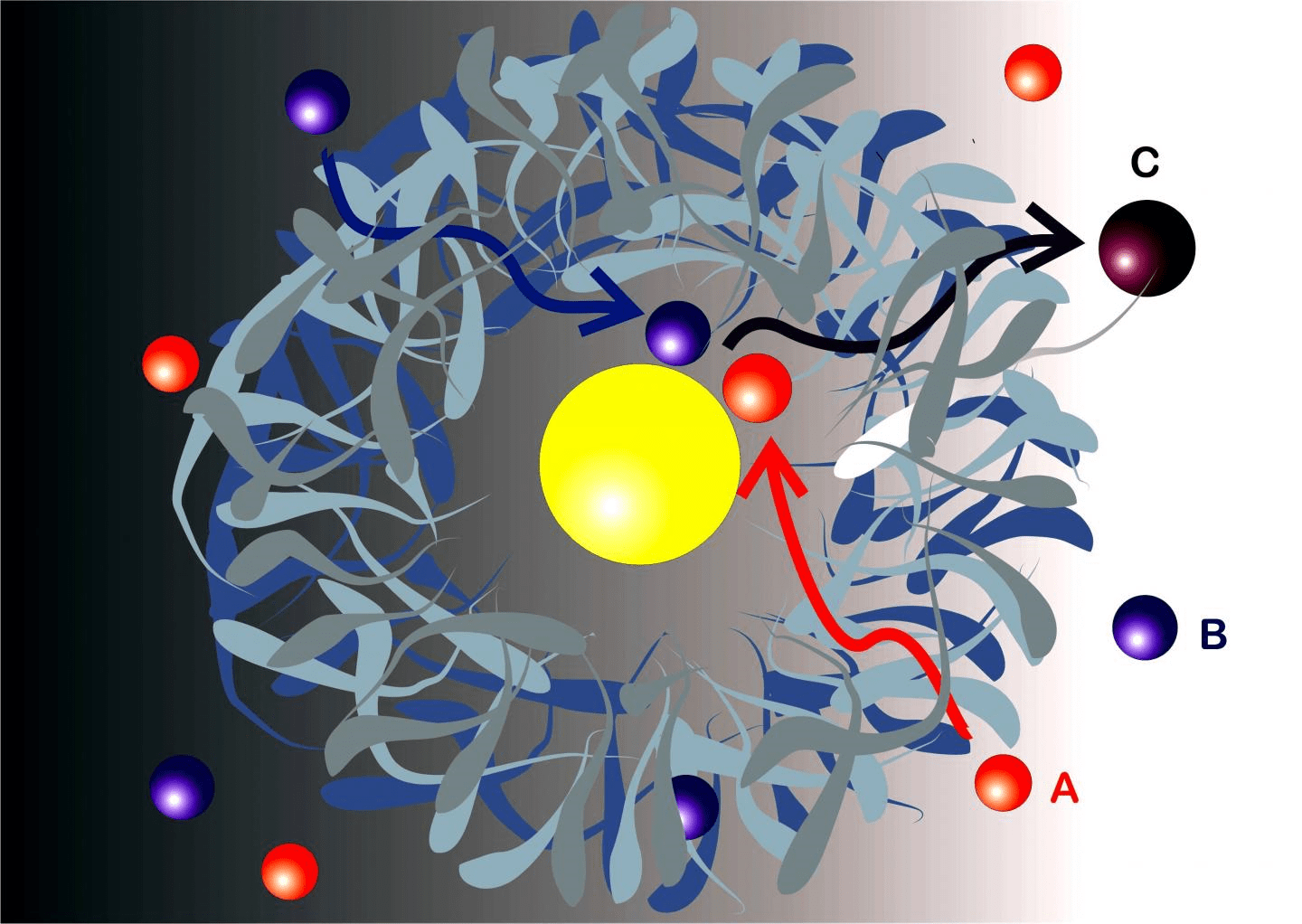
UK Grocery Inflation Eases to 5% in August 2025
UK grocery inflation eases to 5% in August 2025, showing slight relief. Consumers shift to value shopping as branded items rise and dining out declines.

Scientists from EPFL (Ecole Polytechnique Federale de Lausanne) have developed nanosensors on AI, which allow researchers to observe different types of biological molecules without disturbing them.
The world of biomolecules is rich in captivating interactions between many different agents such as intricate nanomachines (proteins), shape-shifting vessels (lipid complexes), chains of vital information (DNA), and energy fuel (carbohydrates). However, the ways in which biomolecules meet and interact to define an essential symphony are incredibly complex.
Scientists at the Bionanophotonic Systems Laboratory in EPFL’s School of Engineering have developed a new biosensor that can be used to monitor all major classes of nanoworld biomolecules without disturbing them. Their innovative method uses nanotechnology, metasurfaces, infrared light, and artificial intelligence.
In each molecule’s symphony having its own melody, nano-perfect orchestrations work physiological miracles such as sight and taste. Simultaneously, minor dissonances can intensify into terrible cacophonies, leading to pathologies such as cancer and neurodegeneration.
Tuning to this small world and distinguishing between proteins, carbohydrates, lipids, and nucleic acid without disrupting their interaction is essential to understanding life processes and disease mechanisms. Light—and more precisely infrared light—is the core of the biosensor. People cannot see infrared light outside the spectrum of visible light, ranging from blue to red. However, humans can feel it in the form of heat in our bodies as our molecules vibrate under the excitation of infrared light.
If you imagine sound frequencies instead of infrared frequencies, it’s as if each molecule has its own characteristic melody. However, tuning these melodies is very challenging because, without amplification, they are just a whisper in a sea of sounds. To make matters worse, their melodies can be very similar motifs, making them difficult to distinguish.
To solve these two issues, scientists are using AI and Metasurfaces. Metasurfaces are artificial materials with exceptional possibilities for manipulating light on a nanoscale, allowing functions beyond what is otherwise seen in nature. Here, their precisely designed meta-atoms, made of gold nanorods, act as enhancers of light interactions by tapping into plasmonic excitations arising from the collective oscillations of free electrons in metals.
AI is a powerful tool that can feed on more data than humans can process at once, and that can quickly develop the ability to recognize complex data patterns. AI can be imagined as a complete beginner musician who listens to various amplified melodies and creates a perfect ear in just a few minutes and can distinguish them even when played together – as in an orchestra that contains many instruments simultaneously.

UK grocery inflation eases to 5% in August 2025, showing slight relief. Consumers shift to value shopping as branded items rise and dining out declines.

Zelenskiy–Trump summit boosts markets as equities rise and the dollar steadies amid growing peace hopes. Investors await Fed insights at Jackson Hole for further direction.

Statistics Canada is investigating an accidental early release of June manufacturing data, raising concerns over data governance and market integrity. The agency has launched an internal review to strengthen its publishing protocols.

Investor confidence in France is deteriorating as political gridlock and budgetary uncertainty deepen.

June 09, 2025: Canada will host the 50th G7 Summit from June 15 to 17 in Kananaskis, Alberta, amid heightened global tensions and economic rifts.

May 30, 2025: Canada’s economy expanded at an annualized rate of 2.2% in the first quarter of 2025, outperforming the market forecast of 1.7%.

At seventeen, Professor Richard Rose stepped into a world few adults dare to navigate: the world of children fractured by trauma. He wasn’t a clinician then, nor a scholar. He was simply a young man with a heart tuned to the quiet ache of others.

Following a distinguished Law Enforcement career Joe McGee founded The Securitatem Group to provide contemporary global operational specialist security and specialist security training products and services for private clients, corporate organisations, and Government bodies. They deliver a wide range of services, including complete end-to-end protection packages, close protection, residential security, protection drivers, and online and physical installations. They provide covert and overt investigations and specialist surveillance services with a Broad range of weapons and tactical-based training, including conflict management, risk and threat management, tactical training, tactical medicine, and command and control training.

Jay Wright, CEO and Co-Owner of Virgin Wines infectious energy, enthusiasm, passion and drive has been instrumental in creating an environment that encourages talent to thrive and a culture that puts the customer at the very heart of every decision-making process.

Fabio de Concilio is the visionary CEO & Chairman of the Board at Farmacosmo, a leading organization dedicated to mental health and community support services. With a deep commitment to identifying and meeting customer needs, Fabio ensures that high standards are maintained across the board.

Leave us a message
Subscribe
Fill the form our team will contact you
Advertise with us
Fill the form our team will contact you